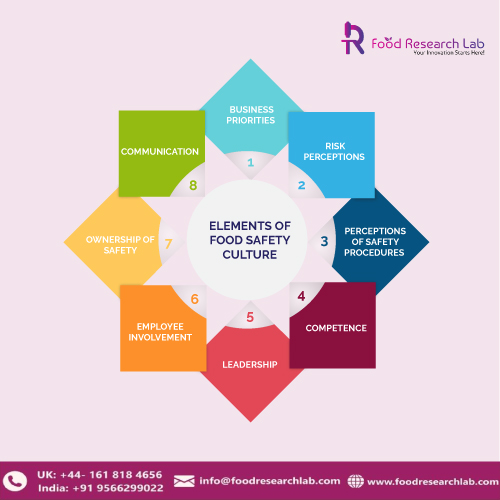
Fundamentals of Food Production and Food Industry
Food Procurement and Food Grading in Food Productions
Primary food production involves everything from food procurement, inventory control, quality checks to processing. Milking, capturing fish and shellfish, and collecting hen eggs are more examples. The primary dietary categories, sometimes known as food components, are vegetables, fruits, legumes, beans, pulses, grains, tubers, meat, milk, chicken, egg, fish, and other seafood. Food Research Lab is one of the leading food industry consultants and offers various food production services.

Cleaning Of Food Raw Materials
Cutting, washing, packing, storing, and refrigerating raw foods are part of primary processing in food manufacturing companies to keep them spoiling before reaching the customer. These minimally processed foods preserve their unprocessed features, such as nutrition, physical, sensory, and chemical properties, and are suitable for further processing by the food industry (secondary processing). Milling wheat, pasteurisation of milk, and sorting and refrigerating meat are primary processing, typically required before food is consumed to ensure food safety.
Secondary Food Production
Converting raw food materials into more functional or edible forms is known as secondary food production. Secondary food products are refined, purified, extracted, or altered. Processed dairy, flours, edible oils, sugars/sweeteners, and starches are examples of secondary food products. Food process engineering plays a key role in this phase of food production. Physical procedures such as pressing, grinding, dehydration, and chemical processes such as hydrolysis, hydrogenation, or enzymes are examples of secondary food processing.
Cakes, candies, jams, soft drinks, and ready meals are examples of ultra-processed food items made by mixing primary and secondary food components to make ready-to-eat food and drink products with high sensory appeal. To make secondary food items more appealing to consumers, they might be fortified with vitamins, minerals, or functional compounds/organisms such as probiotics.
Heat treatment, fermentation, and packing are all secondary food manufacturing procedures that may be utilised to enhance the shelf life of the original food component. Packaging is essential for protecting food and delaying physical, chemical, and biological degradation. This method is critical for many convenience foods, guaranteeing year-round access to a diverse range of high-quality, nutritional, and inexpensive meals.
Food Supply Chain
The global food system’s third or tertiary activity is the food services business, small-batch food production, wholesalers, distributors, and retailers. This food system entails the safe management of primary and secondary food items (i.e. distribution/transport/supply, storage, and sale/trade). It also handles customer demand and supply management and more significant concerns like food waste reduction.
Retailers are heavily involved in the consumer markets (downstream) and the manufacturing and distribution processes (upstream). The store is not only a passive food distributor: it may influence food production, innovation, quality, and packaging. Supermarkets (particularly in the United Kingdom) are sensitive to customer concerns; for example, by procuring more sustainable goods such as fairtrade and organic items, they may help set environmental standards in the supply chain.
Equipment
The equipment used for the chosen manufacturing must meet all regulations and criteria in that specific food processing industry. When selecting a supplier, keep in mind that it is in his best interests to gain money rather than properly organise your company’s work. At the moment, it’s critical to consider what specific equipment is required for the launch and how you may save money while improving output. The installation of equipment and the adjustment of its operation are critical. To accomplish so, you’ll need to hire experts familiar with the technical aspects and the working environment. Make a plan for the equipment’s installation and operation before buying it.

Conclusion
Modern food production services enable the manufacture of more goods from fewer raw materials through logical processing and other technologies and the preservation of products for extended periods, avoiding damage and rejection, which is equally significant. The advancement and development of new logical processes impact all aspects of the food sector, allowing producers to deal efficiently with cereals and grains, wheat, fish, meat, convenience meals, vegetables, dairy and dairy products, etc.





